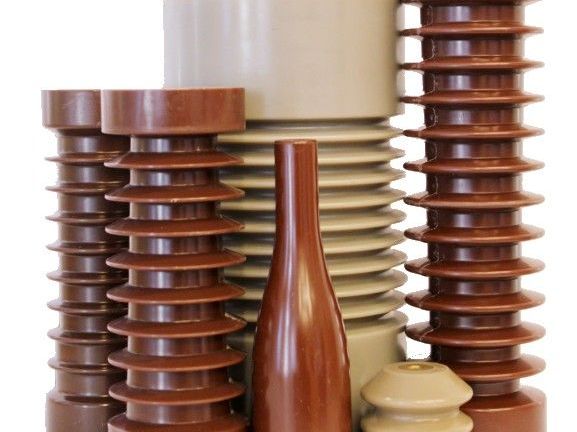Due to their excellent electrical insulation properties and other benefits, epoxy resins are used in a wide range of electrical and electronic components and products, especially in demanding high-voltage, indoor and outdoor applications where excellent mechanical properties and weather resistance are required.
- Insulators, high voltage connectors, disconnect switches, bushings
- Instrument transformers
- HV dry-type distribution transformers
- Components for switchboards
- Encapsulated conductors
- Electric motors and electric drives
- Generators
At home, you can encounter epoxy resin mainly in electronics. Due to their adhesion to the substrate and individual parts, epoxy systems are used for potting and dripping in, for example, printed circuit boards, sensors, pick-up rings and control units.
EPOXIES HELP FUTURE CHANGES
The plan to switch from fossil fuels to renewables, as part of the Green Deal for Europe, entails huge changes in Europe’s energy systems and requires modernisation of the distribution and grid. Epoxy resins will be an essential material in many applications where excellent insulation properties, versatility and durability are required, for example in instrument transformers that are part of high voltage switchgear.
The EU’s environmental direction also means moving away from traditional cars and other means of transport and promoting more sustainable mobility. Epoxy resins help this transformation in many ways. They are used to make lightweight, high-quality and durable composite components for vehicles that use less fuel and therefore produce fewer emissions due to their lighter weight. In addition to composite parts, epoxy resins play a key role in electrical wiring and electrical powertrains for vehicles, as well as being used as a potting material in the manufacture of electrical components and as a heat and fire resistant material in the manufacture of batteries.
Future growth in the use of epoxies is also estimated in the information technology and electronics sectors. Without epoxies, there would be no everyday essentials such as smartphones or modern medical equipment such as MRIs.
The use of epoxy resins benefits not only end users but also many industries and is one of the materials of our future.
EPOXY SYSTEMS FOR THE ENERGY AND ELECTRONICS INDUSTRIES
Our CHS-EPODUR® product range includes epoxy systems for high and very high voltage insulation parts (insulators, bushings) and for instrument transformers where excellent adhesion to metal parts is essential. Our epoxy systems are designed for vacuum casting and APG (Automatic Pressure Gelation), as well as for the production of composites by coiling and pultrusion. Due to their excellent mechanical and electrical properties, epoxy composite tubes and rods produced in this way are used as high voltage insulators, transformers and bushings.
The SADURIT® product range includes pre-filled epoxy systems for outdoor and indoor use and epoxy systems for casting, casting and dripping.
The VEROPAL® and VEROBOND® product lines offer adhesives for applications in the energy, electrical and electronics industries.
Our sales and technical team is ready to offer you the right solution for your production technology or application, but also to customize our epoxy systems to your needs. For more information, please contact our segment leader for electro: Jiří Viktora, viktora@spolchemie.cz, +420 736 488 97.
Mgr. Kamila Vítek Derynková, Product Marketing Manager
Jiří Viktora, Segment Leader Elektro & Elektronika





